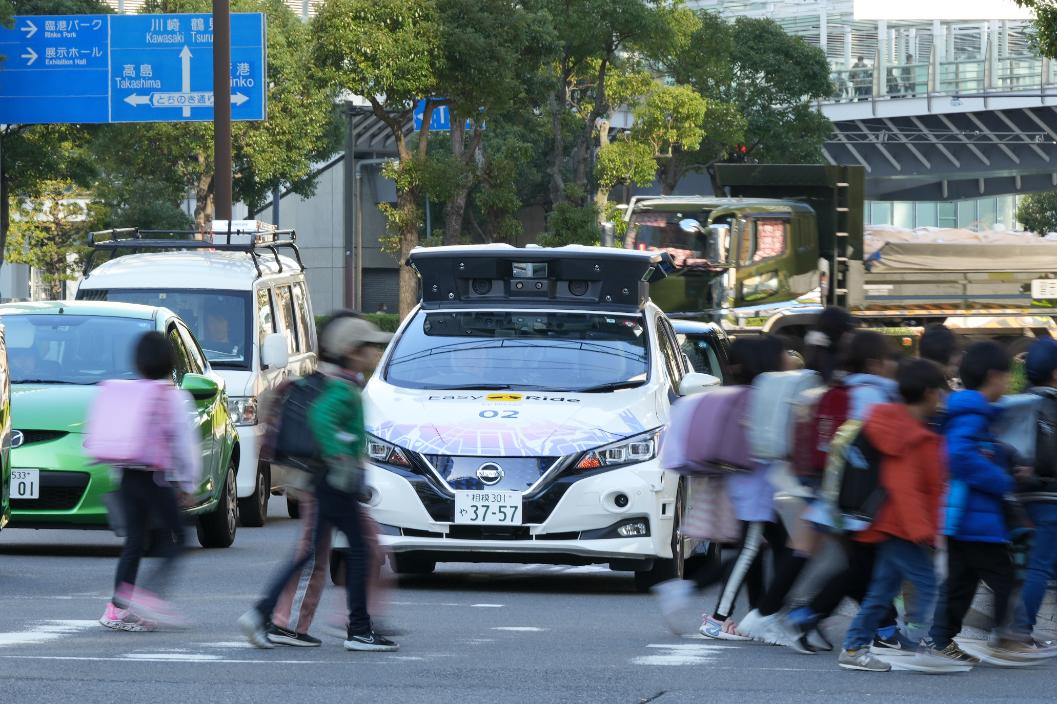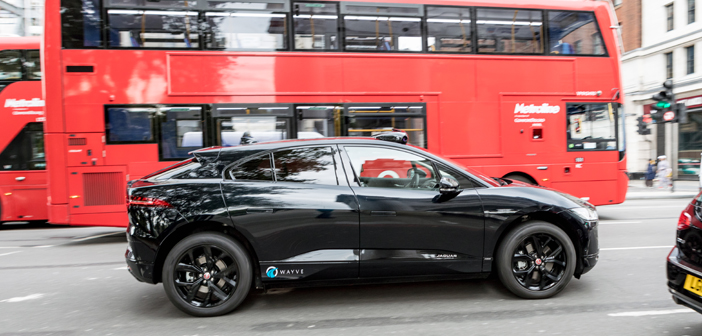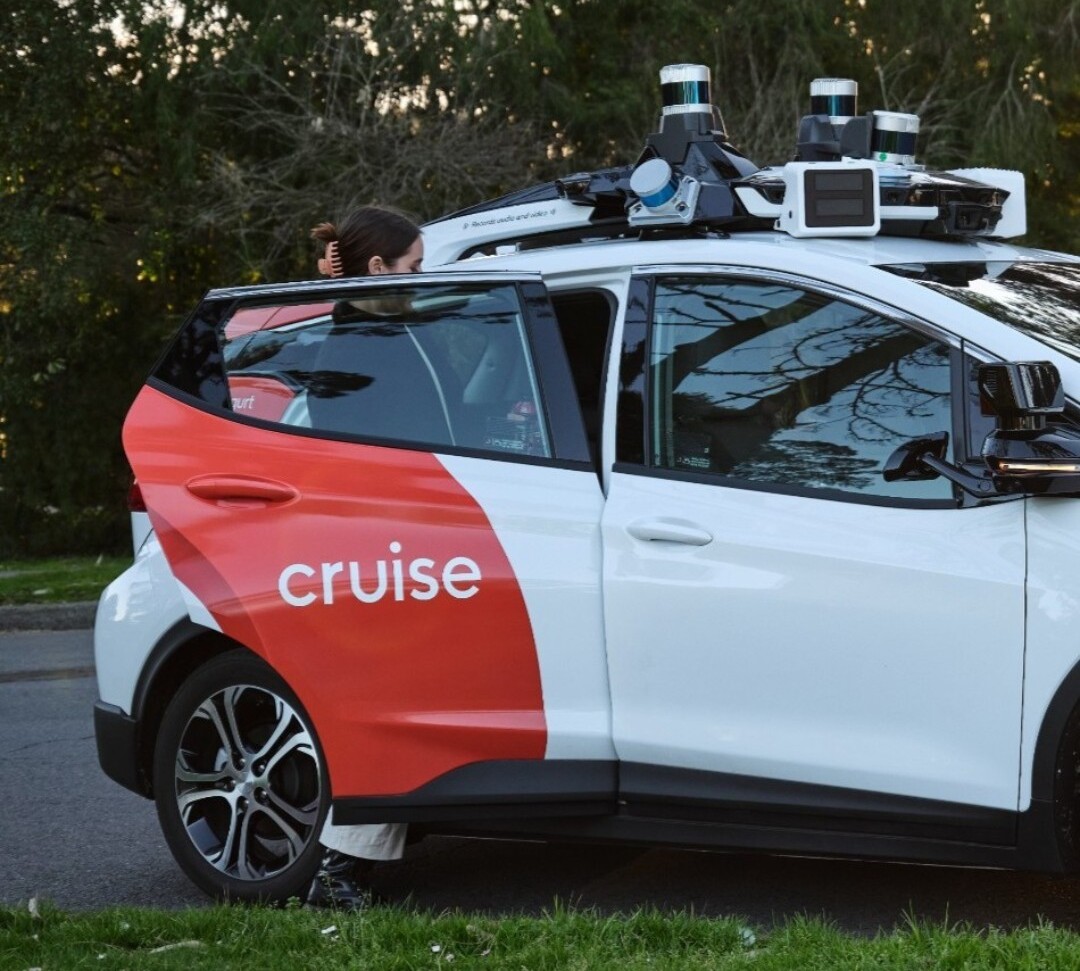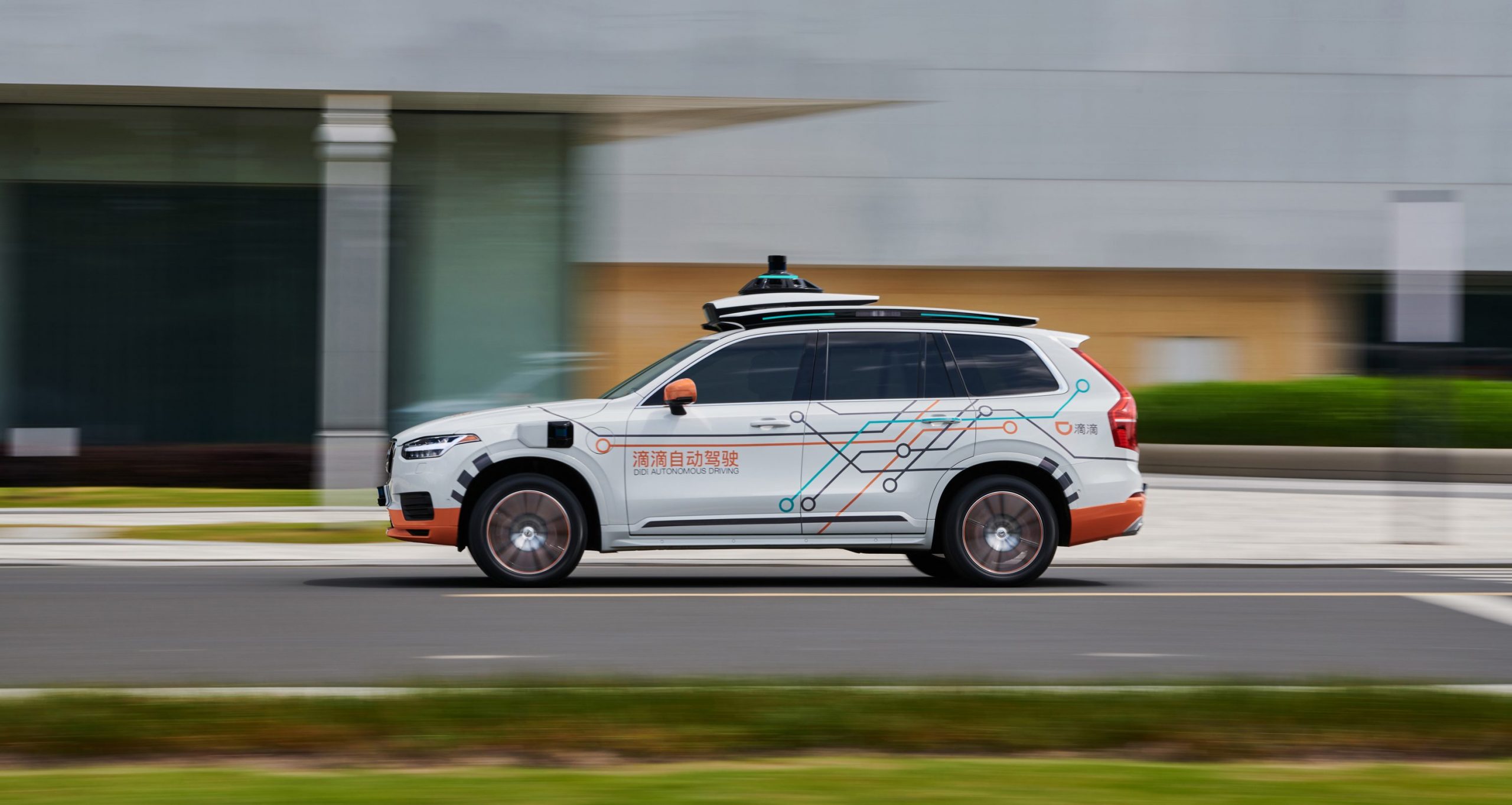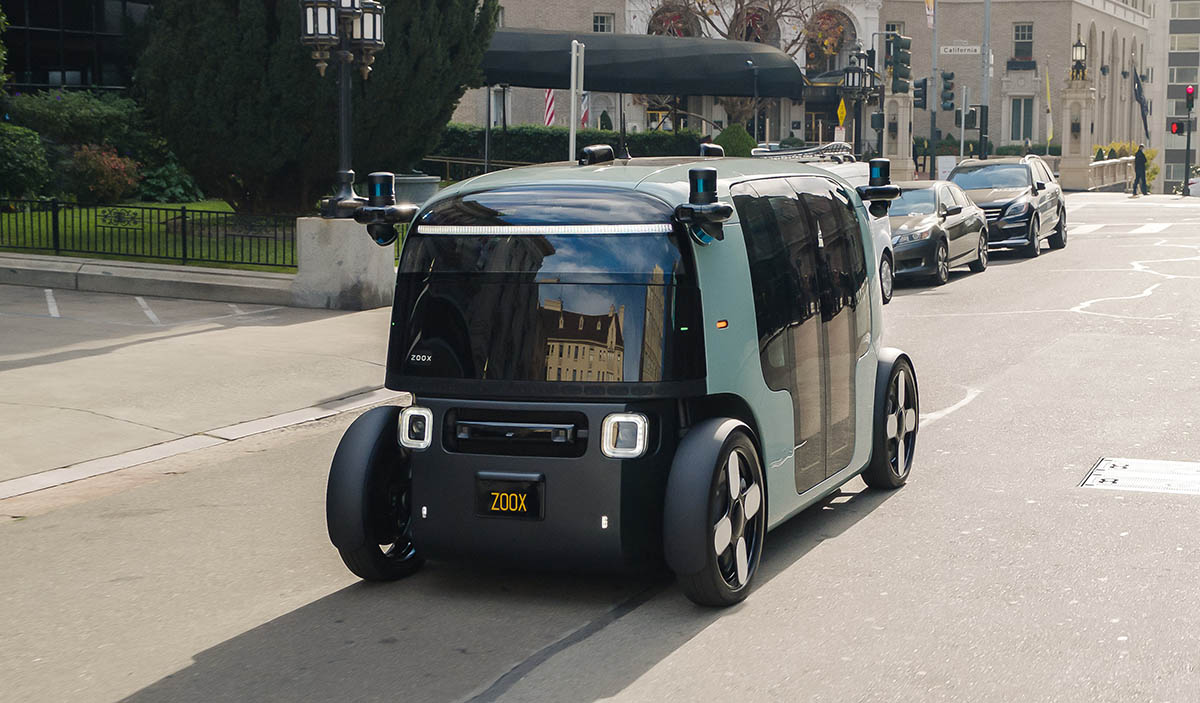Nissan has commenced public road demonstrations of its latest prototype equipped with in-house-developed autonomous drive technologies in Japan, marking a significant step towards its goal of launching autonomous mobility services by fiscal year 2027.
The prototype, based on the Nissan LEAF, boasts an impressive array of sensors, including 14 cameras, 10 radars, and 6 LIDAR sensors. This advanced sensor suite, particularly the roof-mounted sensors, expands the vehicle’s detection capabilities, enhancing its ability to accurately perceive its surroundings and navigate complex scenarios.
See also: Nissan Set to Unveil Affordable Micra EV as Part of Electric Car Push
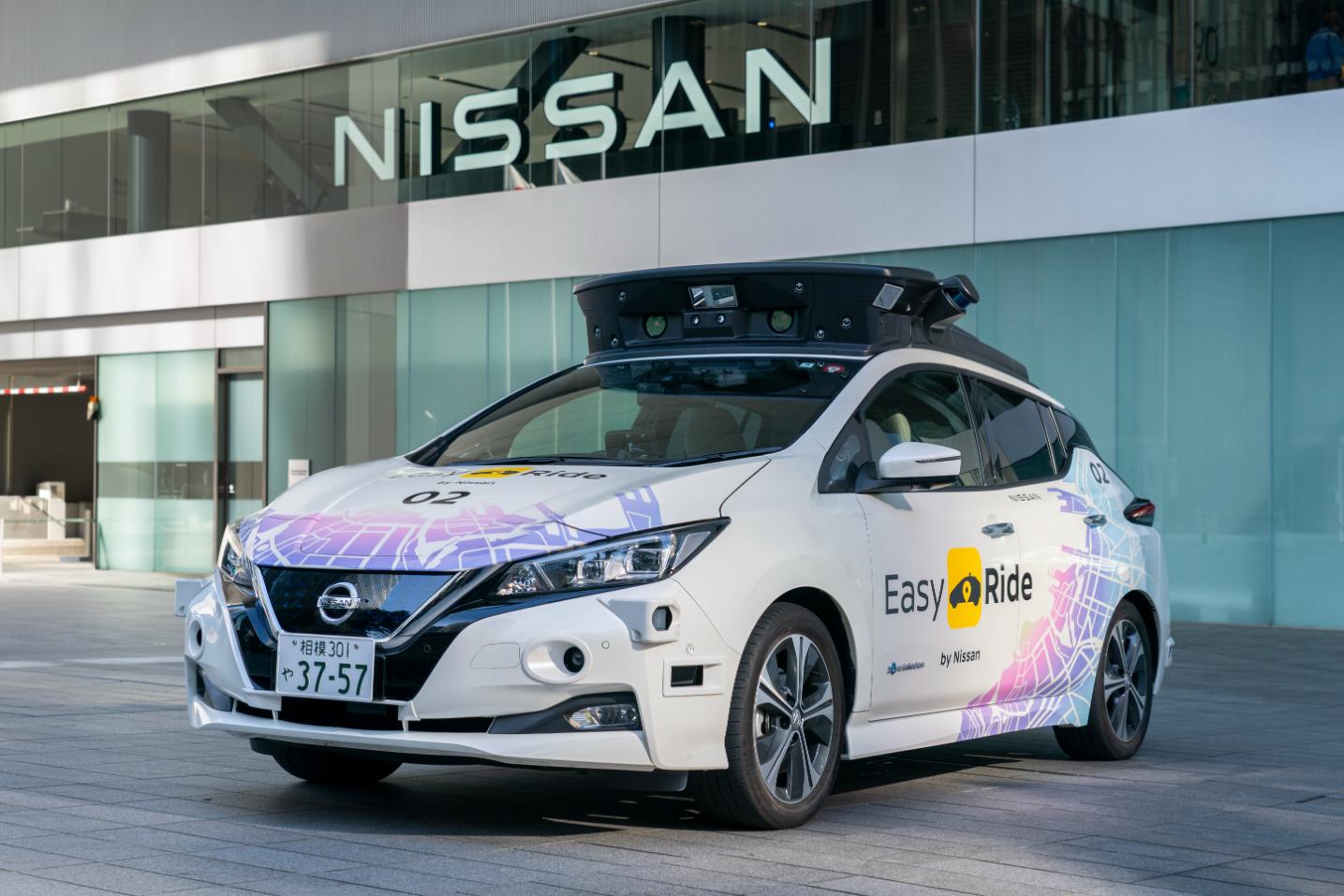
During the demonstrations around Yokohama, near Nissan’s global headquarters, the LEAF prototype showcased its capability to predict pedestrian behavior, execute lane changes while merging, and make informed decisions at intersections, all thanks to its improved recognition, prediction, judgment, and control functions.
Nissan plans to conduct further trials in the Minato Mirai area in the fourth quarter of this fiscal year, with the aim of advancing to service demonstration tests by fiscal year 2025.
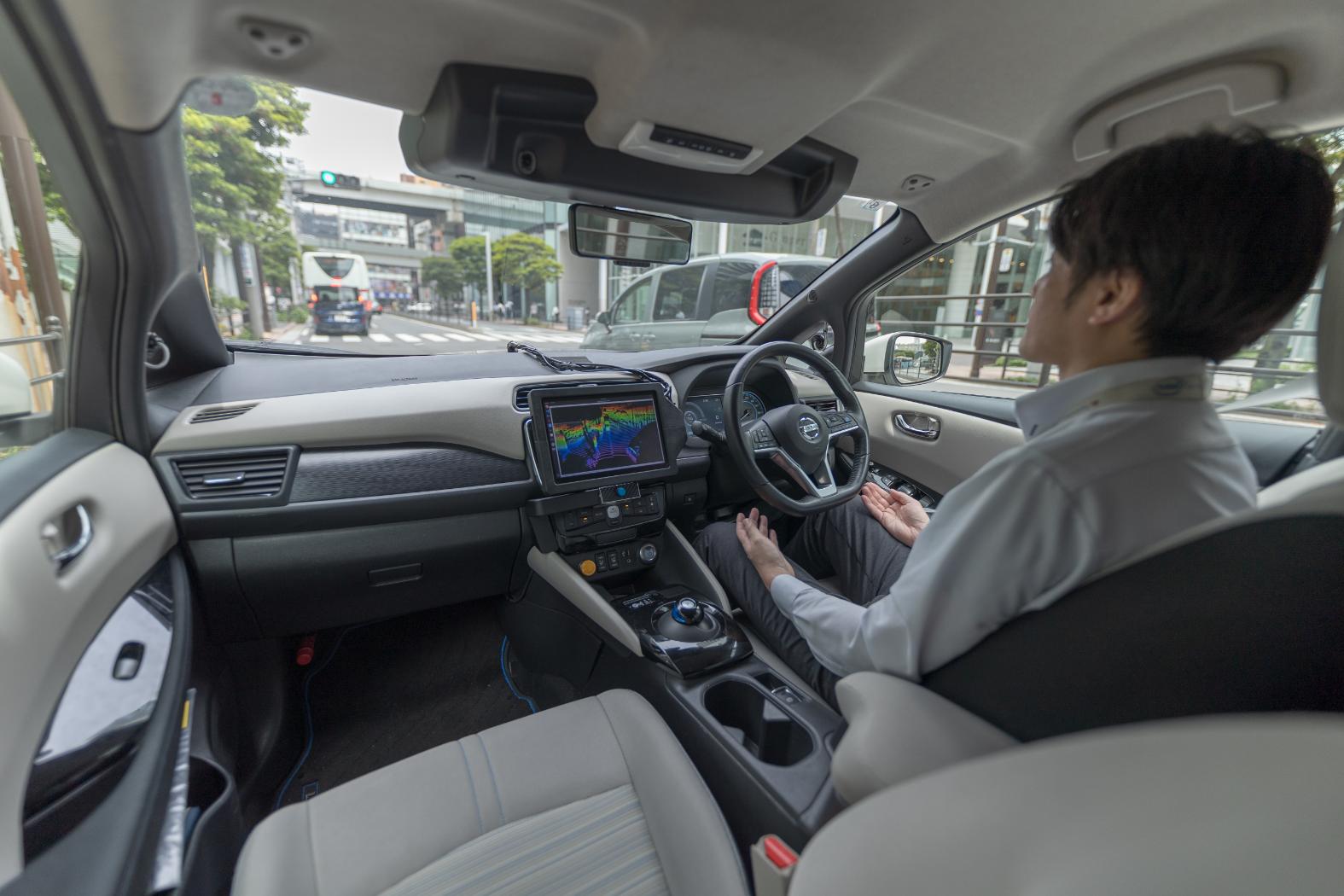
In a press release, Nissan expressed its long-term vision of empowering mobility by addressing transportation service challenges faced by local communities, especially in Japan, where issues like driver shortages due to an aging population are prominent. The company intends to introduce a range of new services to facilitate seamless movement, contributing to resolving these challenges.
The initiative is being carried out in collaboration with the Japanese Ministry of Economy, Trade and Industry; Ministry of Land, Infrastructure, Transport and Tourism; and other central ministries.
See also: Nissan Unveils Seven-Seater Evalia Variant of Townstar with All-Electric Drive

